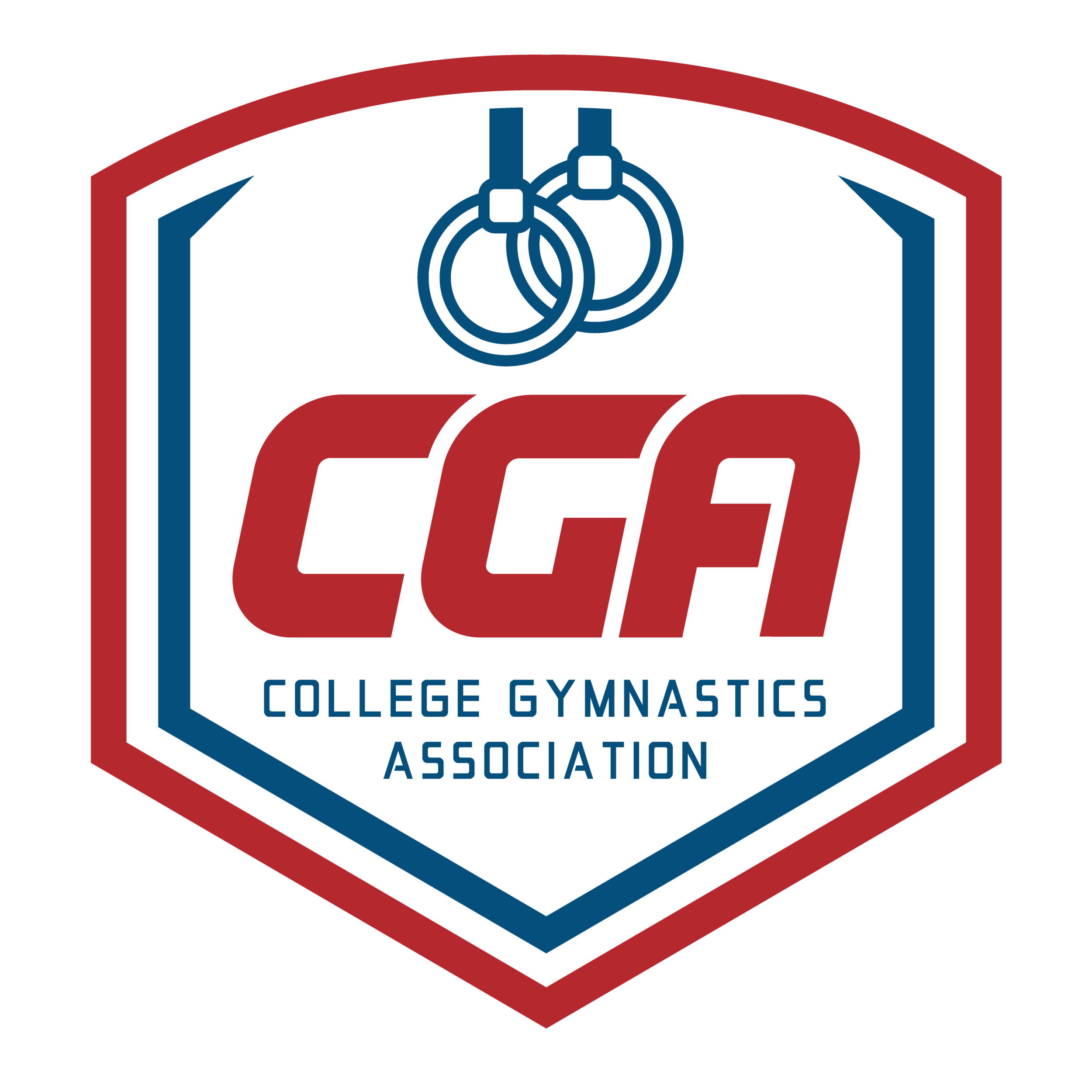Current and former NCAA athletes qualify for finals, Olympics at 2023 World Artistic Gymnastics Championships
Written by Gymnastics Now in partnership with the CGA
ANTWERP, Belgium – NCAA men’s gymnastics was represented well at the 2023 World Artistic Gymnastics Championships this weekend, with 17 current or former NCAA athletes competing in men’s qualifying from September 30 to October 1.
There were plenty of highlights during the pivotal qualifying meet, which was used as the determinate for the final nine men’s Olympic team berths for next summer’s Olympic Games in Paris, and eight all-around berths as well – to eligible individuals not on a qualifying team. Six more berths will be awarded during the apparatus finals next week, and one former NCAA athlete is expected to book his ticket via that path.
Team USA qualified second to the team final in Antwerp with a 254.628, only behind Japan (258.228). The performance easily qualified the U.S. a five-man team to Paris and sets the squad up for an opportunity to ascend to the world podium for the first time since winning bronze in 2014.
The U.S. team is comprised of six athletes with NCAA ties: Stanford’s Asher Hong, Colt Walker, and Khoi Young; Michigan’s Fred Richard and Paul Juda; and Oklahoma’s Yul Moldauer.
In addition to the team final, the U.S. men qualified to six individual finals between them. Richard (6th) and Hong (8th) will compete in the all-around final on Thursday, October 5.
Richard will also compete in the floor final, which he qualified to in second position. Hong was 13th in qualifying, and Moldauer, the 2017 world bronze medalist on the event, was 15th.
Young impressed on pommel horse, besting reigning world champion Rhys McClenaghan (IRL) to qualify second with a massive 15.066. He was second only to back-to-back reigning Olympic champion Max Whitlock (GBR), who had a 15.266. Richard was 15th.
The only final the U.S. men didn’t qualify for is still rings, but Moldauer and Hong showed strong routines to finish 15th and 17th, respectively.
The U.S. showed a diversified vault lineup, highlighted by Juda’s Yurchenko double pike (14.866), Young’s front handspring Randi (14.800), and Hong’s signature Ri Se Gwang (14.766). All three showed a second vault, and the trio finished fifth, sixth, and seventh, respectively, meaning Juda and Young will advance to the final because of the two-per-country rule.
Moldauer qualified fourth to the parallel bars final despite hitting the bar during his routine. He earned a 14.966 and could contend for a medal with superb execution. Hong will join him after an impressive 14.833 qualified him sixth. Richard was 12th, and Young was 15th.
One of Team USA’s weaker events, high bar gave the men a bit of trouble during qualifying, with Richard falling during his competitive routine that could have made the podium if hit in the final. But not all was lost: Juda rode an 8.766 execution score to a 14.166 to qualify sixth.
While the U.S. men had an altogether excellent showing and achieved their primary goal of qualifying a team to Paris, there were some other special moments for NCAA athletes.
Oklahoma’s Emre Dodanli played a crucial role in helping Turkey qualify a team to the Games for the first time. He competed on five events, excluding pommel horse, and earned 8.3+ execution scores across the board. The highlight was on floor, where he finished 22nd with a 14.166.
Turkey didn’t have a perfect day; there were multiple falls, and its other standout individuals missed out on event finals that were well within reach. But throughout it all, Dodanli was the stronghold: calm, consistent, and clean.
"That plays a part in the NCAA – competitions and the way we train in America,” Dodanli said. “It's always consistency. It's always the hit ratio and focusing on all that stuff. So when I do my routine, it's like another day just training. Just raise your hand and do another."
Bulgaria’s Kevin Penev (Michigan) is all but guaranteed an Olympic berth after qualifying in the eighth spot to the vault final with a 14.449 average. There are no other eligible athletes in the final, meaning Penev would earn it by default. All thanks to clean execution on his Kas 1.5 and Yurchenko 2.5.
Despite qualifying via the apparatus finals pathway, Penev will be able to compete in the all-around in Paris. If all goes according to plan, Penev’s brother, Eddie, also a former NCAA (Stanford) and U.S. standout, will join Kevin in Paris. Eddie now represents Bulgaria as well and will try to qualify via the apparatus world cups next year.
Nebraska’s Yanni Chronopoulos served as the alternate for Canada’s team that qualified to Paris with an inspiring performance. The Maple Leaf posted the fourth-best team score in qualifying and could sneak onto the podium in the team final if others let their guards down.
Australia’s high bar extraordinaire Tyson Bull (Illinois) was 13th on his specialty event with a 13.966.
Other individuals with NCAA ties at worlds:
Clay Mason Stephens (AUS/Illinois)
Yordan Aleksandrov (BUL/Cal)
Akseli Karsikas (FIN/Penn State)
Ethan Dick (NZL/Penn State)
Misha Koudinov (NZL/Ohio State)
Kacper Garnczarek (POL/Penn State)
Andres Perez Gines (PUR/Penn State)
